
Fighting corruption requires serious determination
The editorial of Setareh Sobh focuses on the significance and implication of the recent dispute between Sadegh Amoli Larijani and Ayatollah Yazdi.
On Monday, Sadegh Larijani, former Head of the Judicial branch and current Head of the Expediency Discernment Council, issued a statement in response to accusations made by Ayatollah Yazdi, member of the Guardian Council, which resulted in multiple reactions. Due to its harsh tone and unprecedented content, this statement attracted a lot of attention.
Larijani’s performance, during his presidency over the judicial branch, wasn’t criticized at all by the hardline conservatives. However, after being appointed as Head of the Expediency Discernment Council, Sadegh Larijani is facing criticism even from those who were close to him.
There might be hidden motives behind such criticism, but confronting Larijani shouldn’t be completely seen in that light. When Ebrahim Raisi replaced Larijani in the judiciary, this did not merely represent a change in its administration; rather it also represented a change in the management of hardline conservatives as well.
The slogans raised by Raisi and the way he was backed by Iran’s state-run TV, gradually brought the question of fighting corruption to the surface. At first, it looked as if the position of the current Head of the Judicial branch was just a formality, like that of the former heads of this branch.
Nevertheless, what was different this time was the fact that Raisi as Head of the Judicial branch was acting in a non-partisan way. While it seemed that the Judicial branch would not target hardline conservatives, this branch’s recent moves have proved otherwise. In addition, because of disclosures by hardline conservatives like Zakani and Tavakoli against Sadegh Larijani, the cronies of the former head of Judiciary were the first suspects who were investigated by the Judicial branch.
It seems that Raisi’s appointment as Head of the Judicial branch has resulted in settling political accounts within the hardline conservatives as well, which is why Yazdi has so openly lashed out at Sadegh Larijani. Furthermore, because of people’s dissatisfaction over the issue of corruption in the country, the establishment is determined to counter the issue of corruption in a non-partisan way.
Setareh Sobh – August 21
“Reformists” giving up their main cause
The editorial of Hamdeli focuses on how the Iranian “reformist” movement has abandoned its main cause, which was freedom in all fields of civil society.
Two decades after the formation of the “reformist” movement in Iran, it is hard to believe that this movement has given up its main cause and is talking of less important causes to the Iranian people. The “reformist” movement’s main slogan was freedom in all fields, and it became an official political current in Iran by forming a “reformist” government between 1997-2005.
But what happened in actuality was that due to severe opposition and disagreements from hardline conservatives within the Iranian establishment, the “reformist” government couldn’t entirely fulfill its plan for expanding civil freedoms which could have resulted in sustainable development in the country and increase the level of public satisfaction.
However, that wasn’t the end of it. The “reformist” movement was increasingly attacked by the hardliners who were against the society’s will and demands. As a result, the “reformist” elites became isolated, and the “reformist” movement gave up its main cause – freedom – and turned to slogans like fighting corruption and transparency.
Incidentally, hardline conservatives in Iran can appropriate such slogans, just as today they claim that they are the champions of these causes. Their claim is certainly not true, because they do not believe in public freedom at all.
The main reason for weakness in the body of the “reformist” movement is due to it sidelining valuable figures, as well as allowing the presence of those who have never believed in the “reformist” cause – freedom – and have sometimes created obstacles for it.
Hamdeli – August 19
Uncontrollable corruption
The editorial of Servat deals with economic corruption in Iran and how the law allows t to happen.
Despite the fact that a vigorous move has started in Iran to fight corruption, it is not enough to hold trials without reporting the results to the people. Economic experts hold that as far as the economic structure in the country is based on rent-seeking, no court can uproot corruption in the country. There are laws that make it possible for violators to evade penalties, so countering economic violators is not enough. Existence of economic corruption indicates that there are problems in how the country is run, as well as in its laws.
Overseeing bodies headed by the judiciary must be independent. If these bodies continue to deal with the issue of corruption in accordance with their own political affiliations, there is no hope for resolving the existing problems. Public opinion doesn’t see these courts as the real solution, because no official or influential individual has been put on trial on corruption charges.
On the other hand, the country’s important management circle is getting more and more narrow and limited. Instead of appointing worthy managers, ‘dependent managers’ are elected. As such, managers with maximum efficiency and expertise are not chosen; instead, those who just listen and obey have a better chance of being elected.
In addition, in most cases, when there is corruption in an organization, it isn’t immediately disclosed. The managers of that organization cover up the corruption, thinking that they saving the organization’s reputation. Nevertheless, when the issue of corruption is publicized, it damages the credibility of that organization.
Servat – August 19

Pompeo: We removed 2.7m barrels per day of Iran’s oil from the market
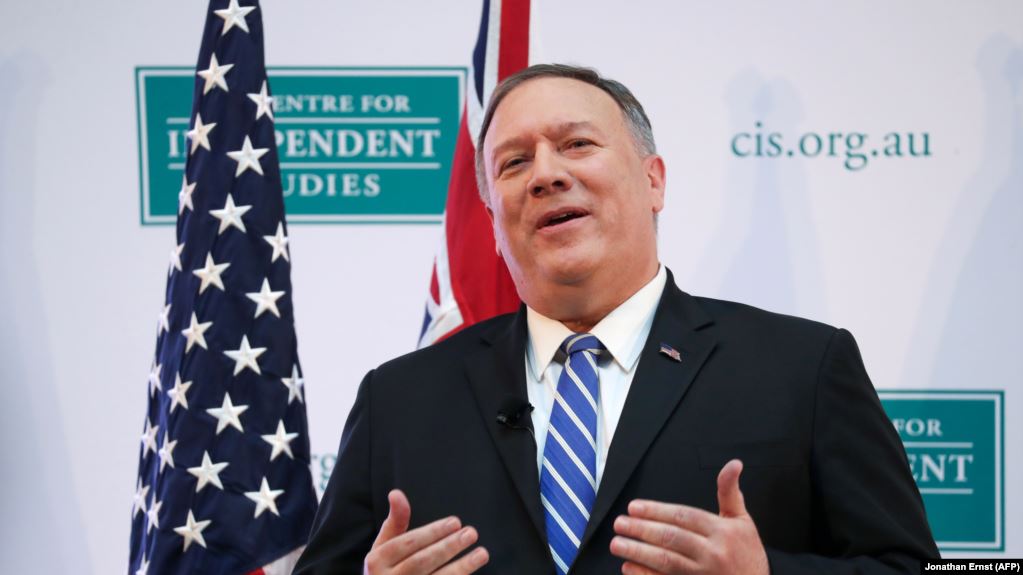
The US Secretary of State Mike Pompeo said that because of the US sanctions, 2.7m barrels per day (bpd) of Iran’s oil have been removed from the global market, emphasizing that Washington was sure its strategy of sanctions would work.
According to Reuters, Iran’s export of oil and gas condensates in July reached 120,000 bpd. Before the US pulled out of the JCPOA last year, Iran’s exports were about 2.8m bpd.
Pompeo stated that the United States had planned to cut Iran’s oil exports without having a negative impact on the global market. The objective was to stop Tehran from having access to huge oil revenues to launch ‘terrorist campaigns’ throughout the world. He asserted that Washington has been successful in this regard, and there is no problem in oil supply in the global market.
Pompeo also accused the Iranian government again of being the biggest threat against peace and stability in the region. He wrote on his Twitter account: “The Iranian regime is the greatest ongoing threat to peace and security in the region. At the UNSC, I condemned its testing of advanced ballistic missile systems, support to proxies in the Middle East, and inexcusable sabotage and seizure of commercial vessels in the Gulf.”
In the meantime, Brian Hook, special representative on Iran to the US State Department, pointed to the expiring of certain UN sanctions against Iran next year, warning that this will not help to create peace in the region.
Hook added according to UNSC 2231 Resolution issued in relation with the nuclear deal, UN arms sanctions on the Islamic Republic will end on October 2020, and the traveling ban on the IRGC Quds Commander Qassem Soleimani and on another 22 Iranians will be lifted.
Brian Hook urged that these sanctions should be extended.
Radio Farda
14 Iranian Arab and Kurdish activists call for the resignation of Ali Khamenei, and the end of his establishment
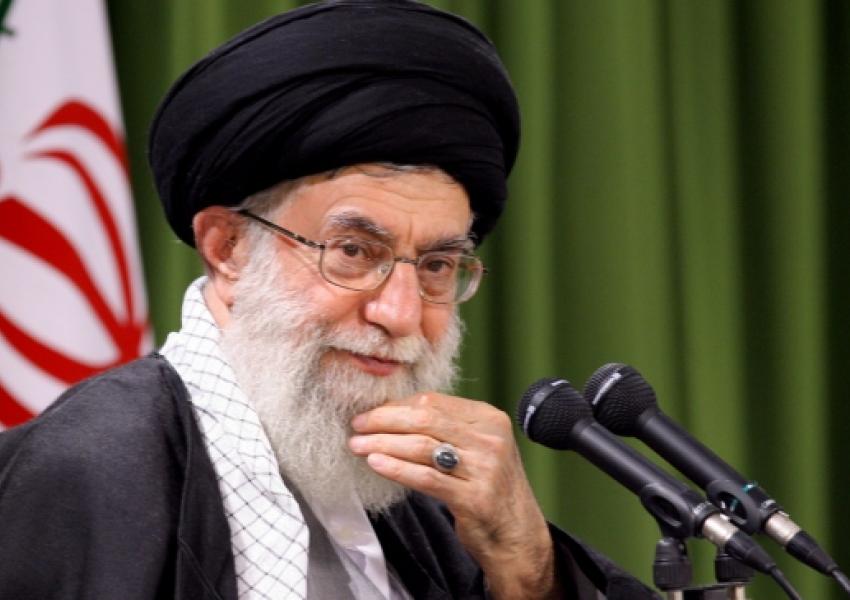
14 Iranian Arab and Kurdish activists, as well as journalists and writers, have published an open letter, calling for the “entire dissolution of the Iranian establishment”, while protesting at “cultural and political discriminations” as well as “linguistic and ethnic apartheid”.
The signatories of this letter have also demanded the resignation of Ali Khamenei, Iran’s Supreme Leader. They referred to the number of executions and imprisonment of individuals belonging to Iran’s ethnic groupings, the letter called Iran’s regime an “apartheid” one.
These activists also requested for the establishment of a “decentralized government”.
Moreover, they supported previous letters written by civil and political activists both inside and outside Iran, urging Ali Khamenei to resign.
14 Iran-based political and civil activists issued a statement in June, asking Ali Khamenei to step down while calling for a fundamental change in Iran’s Constitution.
Following that statement, 14 women’s rights activists in Iran also issued another statement two months later, calling for Khamenei’s resignation as well as a transition from the Iranian establishment. The statement said the Iranian regime was practising “gender apartheid.” This statement enjoyed support from 14 other women activists residing outside Iran.
Iran’s security forces have arrested a number of signatories of those letters in recent weeks.
Iran International
Rift between Ayatollahs
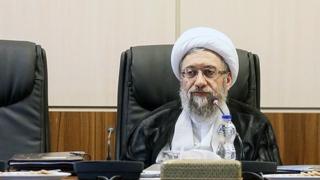
Sadegh Amoli Larijani, head of the Expediency Discernment Council, reacted to Mohammad Yazdi, Chairman of the Society of Seminary Teachers of Qom after Yazdi made highly critical remarks against him. In a letter addressed to Yazdi, Larijani accused him of telling lies, hurling insults, and slandering others.
Recently, it was reported that Sadegh Amoli Larijani had asked the permission of the Islamic Republic’s Supreme Leader Ali Khamenei to migrate to the city of Najaf after his former executive deputy Akbar Tabari was arrested. Tabari– who was Larijani’s executive deputy during his chairmanship of Iran’s judicial branch– was recently arrested on the charge of “using his influence on some judicial cases.”
In his speech in Qom, Mohammad Yazdi slammed Larijani, saying: “Off you go! Nothing will change in [city of] Qom if you leave. Your presence in Qom was not that effective.”
Yazdi accused Larijani of building a “palace in the name of a seminary”, adding “How could you afford it? Did you inherit it from your father?”
In reply, Sadegh Larijani denied Yazdi’s remarks. Larijani said the seminary of Vali Asr was an endowment by his father. He then fiercely criticized Yazdi for “grabbing” a building out of other authorities’ hands and turning it into his own office when he was deputy chief of the Assembly of Experts.
Sadegh Larijani also questioned Yazdi’s presence in the Guardian Council: “All members of that council know how imprecise, unreasonable and even irrelevant your remarks are”. He added, “If they keep silent and do not say a word, it is just out of respect for your age.”
BBC Persian
The Iranian government admits to torturing innocent defendants and coercing them to confess
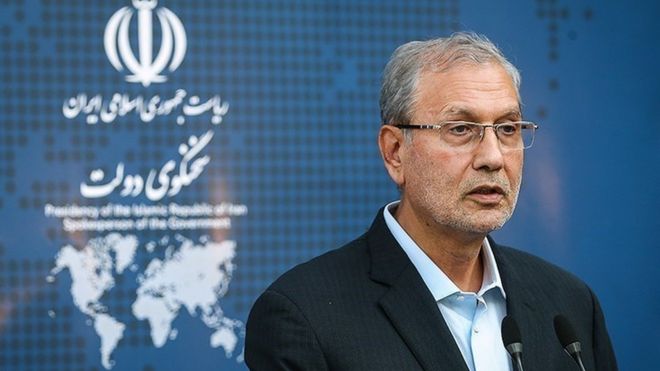
The Iranian government’s spokesperson admitted that the defendants charged with the assassination of nuclear scientists were innocent. “They received apologies and were consoled at the time,” added Ali Rabiei in a press conference.
Rabiei also underscored that those defendants were arrested when the previous government was in office. He added the individuals investigating this case were not counter-espionage experts.
Recently, BBC Persian aired an interview with a defendant of that case, named Maziar Ebrahimi, who was accused of assassinating Iranian nuclear scientists. Ebrahimi said he had been under pressure and tortured by Iran’s Intelligence Ministry to make false confessions.
Ebrahimi, along with 12 others, was forced to confess that he had gone to Israel to receive training for the assassination of Iran’s nuclear scientists. These coerced confessions were aired on Iran’s state TV (IRIB) in a documentary called “Terror Club.”
In the BBC Persian interview, Maziar Ebrahimi — who is currently outside Iran — also cast doubts on the validity of charges and confessions of another defendant of this case, Majid Jamali Fashi who was executed in 2012.
After Ebrahimi’s interview was published, Mahmoud Sadeghi, a parliamentary member representing Tehran, asked the authorities to account for the “validity or invalidity of confessions made by the defendants charged with the assassination of nuclear scientists” in a Twitter post. The Intelligence Minister Mahmoud Alavi promised to hold a press conference in order to clarify this issue. However, he has not fulfilled his promise yet.
According to Iranian authorities, four nuclear scientists were killed in a time span of two years, starting from 2009, and another one survived an assassination attempt.
BBC Persian
UN human rights experts condemn heavy sentences for activists fighting compulsory hijab
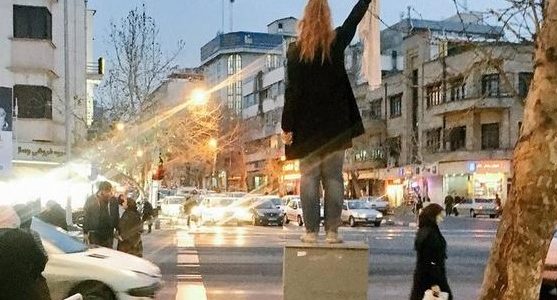
A number of UN human rights experts, in a statement, condemned the issuance of heavy sentences against Yasman Aryani, Monireh Arabshahi, and Mozhgan Keshavarz for protesting against the compulsory hijab and called for their unconditional release. These three civil activists have been sentenced to 55 years and six months of discretionary imprisonment by Tehran’s Revolutionary Court.
In the statement, UN human rights experts said: “We are deeply concerned about the arrest and giving heavy imprisonment sentences to these women in relation to their peaceful activities for their rights”. They asked the Iranian officials to revoke their sentences, they have called for guaranteeing women’s equal rights in Iranian society.
According to the statement, these women have been accused of charges such as “measures against national security”, “propaganda against the establishment”, and “promoting corruption”, just because they had given flowers to other women on International Women’s Day.
UN human rights experts have also told Iranian officials that protesting against the compulsory hijab is a women’s right while suppressing them is in defiance of Iran’s obligations according to international human rights conventions.
Meanwhile, Nasrin Setoudeh, who is jailed lawyer in Evin Prison, wrote a letter regarding efforts by women to end the compulsory hijab in Iran, calling them “creative and peaceful”. She also criticized Iran issuing long imprisonment sentences for activists in this field.
In her letter, Setoudeh praised the efforts of women activists, slamming the fact that the Islamic Republic is after “controlling women day and night”. She added that this control has targeted women’s characters, bodies, and souls, but they have flourished against all odds.
In 2018, Setoudeh was arrested in her house and was later condemned to 33 years and 6 months of imprisonment and 148 of lashes for her human rights activities.
Radio zamaneh
Iran International
Brain drain and denying facts!
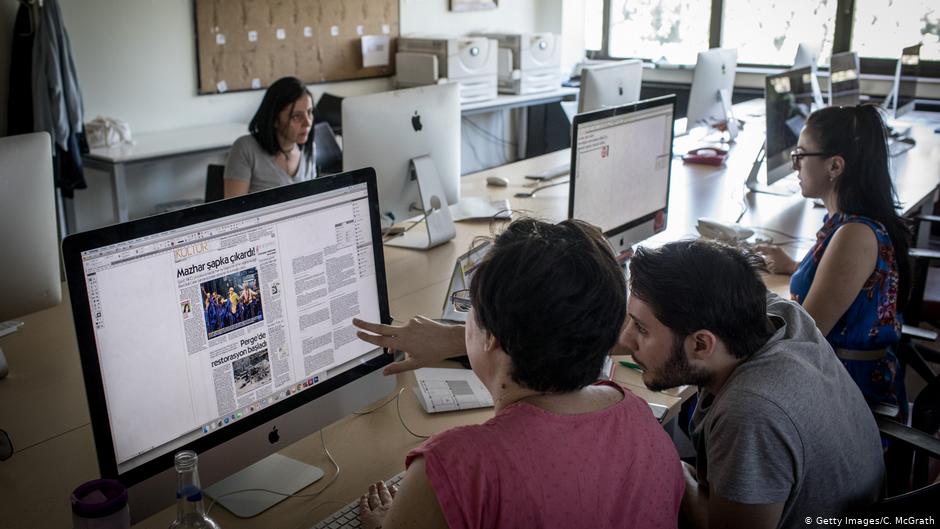
Brain drain from Iran increases every year, making the future of a specialist workforce in Iran darker. The organizations that are in charge of finding a solution for this problem offer contradictory statistics and information in this regard, making it more difficult to study the case sociologically.
Germany’s Federal Office for Migration and Refugees, in its recent report regarding the education of refugee-seekers in this country, announced that in 2018, more than 47% of Iranian refugee-seekers said that they have an academic education. Almost 40% of Iranian refugee-seekers too said they have a high school diploma.
Publication of this information brought the issue of brain drain from Iran into focus once again. According to Bahram Salavati, member of the Institute for Demographic Studies in Iran, “30% of the Iranian population tends to migrate from Iran”.
As for the statistics of educated refugee-seeking Iranians in Germany, it must be mentioned that a part of Iranian graduates who do not have any way for legal migration to other countries enter European countries as refugee-seekers. Meanwhile, the lines of immigrant applicants in front of the embassies of Canada, America, Australia, and some other countries inside Iran and neighboring countries become longer every day.
Brain drain started with the rise of the Iranian establishment. Ayatollah Khomeini, the founder of the Islamic Republic, always emphasized religious faith rather than expertise. As a result of this approach, a simple employee, for example, became the head of the hospital, while there were tens of specialist doctors working there. Most of the doctors left Iran in the early years of the Islamic Republic establishment.
According to estimates by international sources, Iranian people lose billions of dollars due to the migration of individuals with academic education. An economic expert said in 2018 that the cost of educating each person — from primary school to Ph.D. level — was about 11 billion tomans. In other words, what Iranian families and the government spend on scientific and cultural education will be pocketed by the countries that have suitable grounds for attracting these young talented individuals.
Deutche Welle
